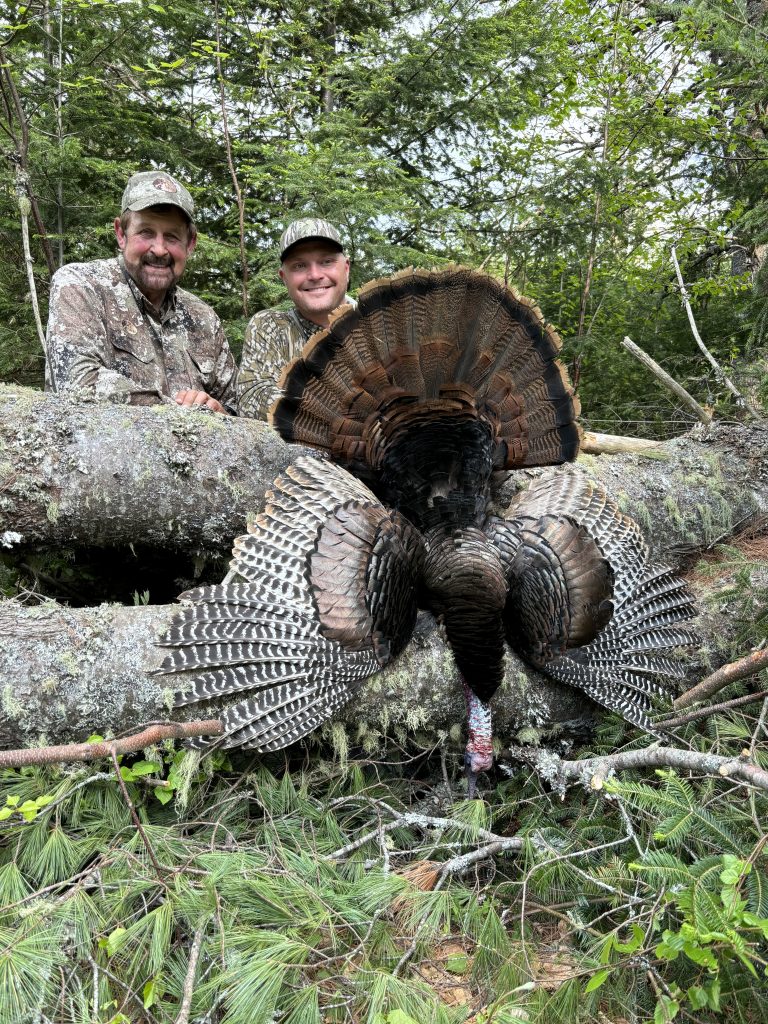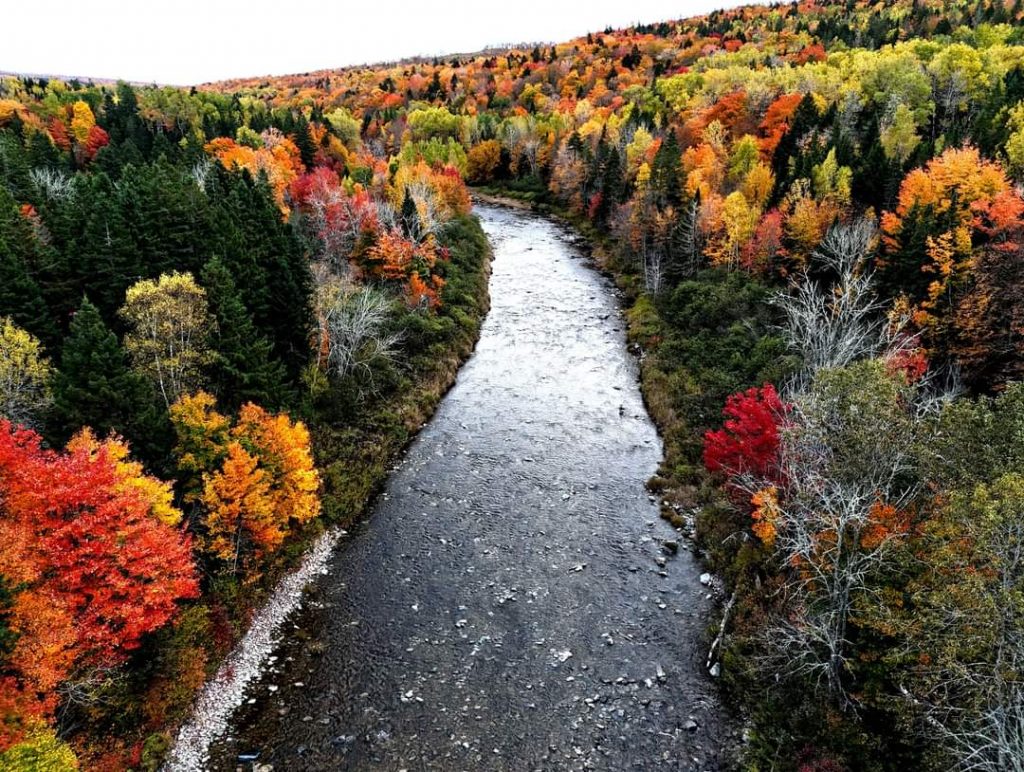North America’s Newest Turkey Season
Experts didn’t believe New Brunswick could support turkeys. But a surprising conservation success story proved everyone wrong.

North America’s newest nonresident turkey hunt is a testament to the hardiness of the birds and the dedication of a former NWTF volunteer who became a government official to ensure the hunt happened. It’s also a conservation success story.
The Canadian province of New Brunswick opened its nonresident season in 2024, just three years after the resident season opened in 2021. The first hunt had many NWTF connections.
The Birds
Turkeys have inhabited New Brunswick for at least 30 years. Although the expansion of turkeys in many areas began with trap-and-transfer, that was not the case there. New Brunswick shares its longest border — more than 200 miles — with Maine. When the turkey population in Maine started expanding into the northern part of the state, the birds didn’t recognize the border. But even making it to northern Maine was a stretch beyond where biologists believed the birds could survive.
“On the original range maps, the thinking was turkeys wouldn’t go any farther past the southern part of Maine,” said Rob Keck, former CEO of NWTF. “The wild turkey proved me wrong, and it moved all up the snow belt into northern Maine and across the border into New Brunswick.”
The cuts for power lines and natural gas lines between New Brunswick and Maine made natural wildlife travel corridors, and turkeys quickly learned to take advantage of them.
As turkeys became established in New Brunswick, hunters gladly welcomed them, but not everyone felt the same way. For that reason, the province didn’t undertake trap-and-transfer programs, which are often a critical part of turkey reintroductions.
The terrain in southern New Brunswick is similar to that of Maine. Forests of red spruce, balsam fir, maple and yellow birch are mixed with agricultural fields of potatoes, soybeans, oats, hay and old apple orchards. In the north, there is less agriculture and more forest.
“The winters have been great, so survival is better,” said Terry Smith, past-president of the Canadian Wild Turkey Federation.
Turkeys are also spreading north into forested areas, taking a liking to areas where forestry operations were completed.
“When you’ve got four feet of snow, and a crust on it, a turkey can go for a walk and walk 10 kilometers,” Smith said.
The Volunteers
When the NWTF was operating in Canada, Mike Holland was the district director for New Brunswick, and Smith held the same title for Nova Scotia. Smith said there was talk 20 years ago of a turkey season, but it didn’t come to fruition.

When Canadian regulations forced the NWTF to cease its Canadian operations, Smith and Holland were behind the formation of the Canadian Wild Turkey Federation in 2014. Smith became the first president, and they continued to push for a New Brunswick turkey season.
“One of the questions bounced around for 20 years is were they (turkeys) indigenous or were they introduced,” Holland said. “That question slowed down the management of turkeys.”
Early management conversations included the possibility of trap-and-transfer programs, but when that was shot down a decade ago, CWTF pushed the solution of management through hunts, Holland said.
Then the opportunity arose for Holland to run for the provincial legislative assembly.
“I quite frankly ran because if I ran and became minister of natural resources, I could finish what I started,” he said.
And he did, ushering in New Brunswick’s first turkey season in 2021 as a draw for residents. In 2024, the nonresident season was launched.
The Hunt
Smith owns North Shore Guide Services in northern New Brunswick. When the nonresident turkey season opened, all the tags were distributed through outfitters by lottery. Smith applied and was successful, getting five tags.
Smith has kept his connections with the NWTF and regularly attends the convention. Keck had told him if a hunt ever opened in New Brunswick, he wanted to be a part of it. Keck was the first to complete a Super Slam, harvesting a turkey in every state with an open season. He has harvested turkeys in Ontario and Quebec and wanted to hunt New Brunswick. Before the hunt, he had to take an online New Brunswick turkey hunting course.
He found the New Brunswick landscape reminiscent of Maine and believes there are a lot of areas where turkeys can still inhabit in the province. Keck, who hunted with NWTF co-CEO Jason Burckhalter, had accolades for Smith, saying he was always into turkeys. He found a difference being one of the first hunters to pursue the birds in the province.
“I found it was a lot easier hunting these turkeys than hunting turkeys in North Carolina, South Carolina and Georgia,” Keck said. “They just haven’t had the pressure on them. It’s been light pressure, and maybe in some cases, it was the first turkey call from a hunter they’ve heard.”
But it wasn’t a situation where the birds gobbled all day every day.
“Even in areas that are lightly hunted, turkeys can be turkeys,” Keck said. “The one day you couldn’t buy a turkey sound. The next day, they were everywhere.”
Smith charges $1,600 for a week’s hunt. Other outfitters with bear zones in the area with the turkey seasons offer a combination of turkey and bear hunts.
Happy Ending
With New Brunswick checked off his list, Keck wants to hunt in every province with a nonresident season. He purchased a special tag allowing a nonresident to hunt turkeys in Alberta in 2025, and plans to hunt British Columbia at the same time to complete that goal.
And there is a happy ending for Holland, too. He had hunted turkeys in several places in Canada and the United States, but not at home.
“It started as a bucket list item and became an obsession,” he said.
Never intending to be a career politician, Holland resigned in June 2024 and replaced Smith as CWTF president. While minister, he didn’t think applying for a resident tag was appropriate.
“It killed me because I worked to bring turkey hunting to New Brunswick,” he said of his inability to hunt. But he applied this year, was drawn and harvested a turkey.